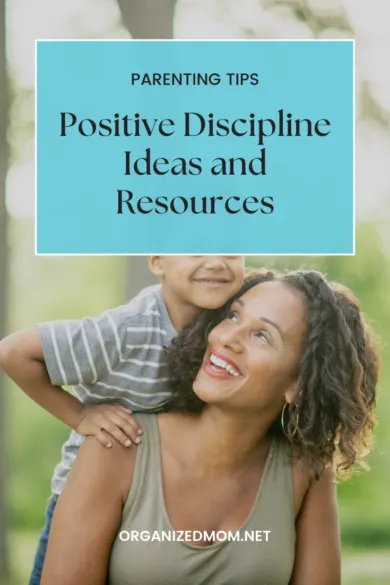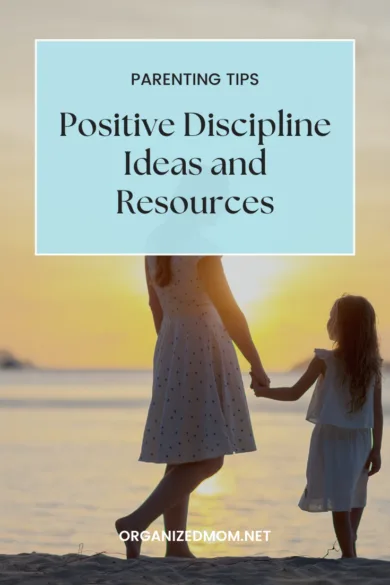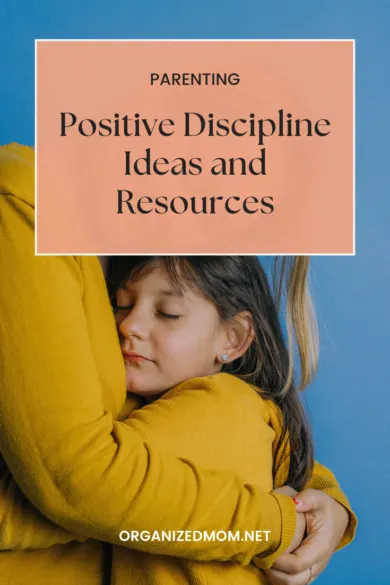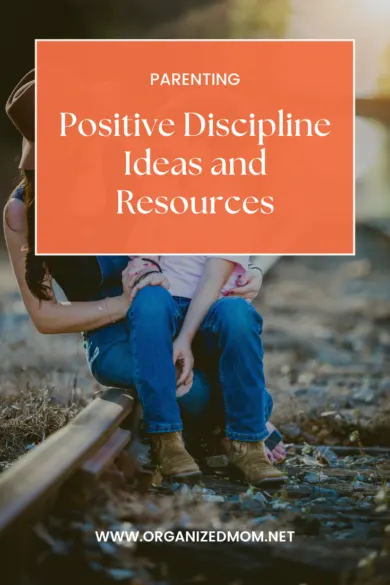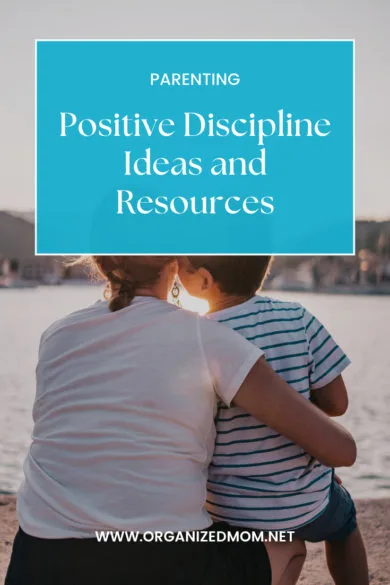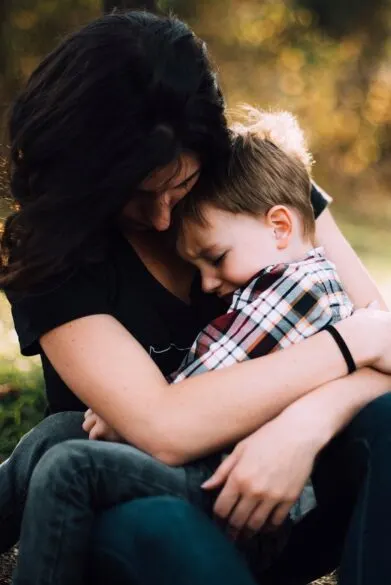When it comes to discipline, many moms and dads will probably say it is their hardest and least favorite role as a parent. Over the last 11 years of parenthood, I have had to reshape how I think about discipline. Instead of viewing it in a negative way, I’ve tried to really embrace the core of the word – disciple – meaning, to teach.
When I discovered the positive discipline approach, it completely changed how I thought about disciplining my kids. There is so much to unpack when it comes to positive discipline, but in this article, I will give you a brief overview as well as provide the titles of a few of my favorite positive discipline books.
Let’s dive into some key positive discipline ideas and resources.
But first, here is a quick review of 3 common types of discipline styles.
Authoritarian – This type of parenting style often involves punishment. Parents punish the behavior without really trying to understand the cause behind it. Punishments often lead to a broken connection in the relationship.
Permissive – This type of parenting involves very little punishment or boundaries. Parents don’t set limits and kids are mostly in control. You would think this would be a child’s dream come true, but actually it’s the opposite. Kids want and need structure.
Authoritative – This type of parenting involves setting clear boundaries while also involving the child to help solve behavioral problems. It also focuses on natural consequences and empathy. Positive discipline fits into this style.
Before discovering the positive discipline approach, I used to jump back and forth between being strictly authoritarian in my approach, or being way too permissive after worrying about being too harsh. Neither felt right to me, and I started to look into other types of discipline approaches.
One of the first books I read was Dr. Laura Markham’s book, Peaceful Parent, Happy Kids: How to Stop Yelling and Start Connecting.
Honestly, when I first started learning about the concept of positive parenting, I was pretty incredulous. How would my kids effectively learn without me handing out punishments? Wouldn’t I just be creating spoiled little monsters? But as I learned more, the concepts behind positive parenting started to resonate.
The basic concept of empathy with limits, while focusing on a strong connection with your kids, really made sense to me.
Instead of just hoping my kids would “learn their lesson” through some sort of punishment, I began trying to understand my children’s point of view and the reasons behind their behavior. I started taking the time to help my kids label and better understand their emotions.
I still have high expectations and set clear boundaries, but discipline has become more about teaching than punishing. This type of approach fosters a stronger connection, and strengthening the connection with my kids has led to fewer behavior problems.
Another key component in positive parenting is taking the time to repair the relationship when needed.
According to the book Raising a Secure Child: How Circle of Security Parenting Can Help Your Nurture Your Child’s Attachment, Emotional Resilience, and Freedom to Explore by Kent Hoffman, Glen Cooper, and Bert Powell, as the parent we should always try to be “bigger, stronger, wiser and kind.”
Setting limits in a kind, firm way is certainly a wonderful way to parent. But let’s face it, we all lose our patience and yell, or say something we regret saying, or even have our own adult version of a temper tantrum.
When you mess up, apologize. Explain your feelings to your children (a great time for them to practice their empathy!). Talk about how you could have handled the situation differently. None of us are perfect parents and that’s ok! Don’t beat yourself up over it.
Another aspect of positive discipline is trying to understand the reason behind the child’s behavior.
In their book, No-Drama Discipline, Dr. Daniel J. Siegel and Dr. Tina Payne Bryson explain the concept of shark music. What is shark music? It’s the background chatter in our head—usually based on something from the past or a future fear—that can affect how we react to our children’s behavior. Here is an example from my own life.
When my oldest was a six-year-old, we took a trip to an amusement park. It was going to be a long day with lots of walking, so I rented a double stroller for him and our 3-year-old. When he refused to sit in it, the shark music in my head cranked up.
“Here we go again, he is being defiant for no reason!”
“Am I going to struggle with his bad attitude the entire day?”
“Why can’t he just cooperate? What’s the big deal about riding in a stroller?”
Instead of forcing his cooperation through a “because I said so!” approach, I tried to remember my recently learned positive parenting techniques.
I took a deep breath, knelt down to his level and asked him why he didn’t want to ride in the stroller. With tears in his eyes, he looked up at me sadly and said “Mom, if I ride in the stroller everyone will think I’m a baby. And I’m not a baby anymore. I’m a big kid!”
At that moment, I realized the shark music playing in my head hadn’t allowed me to even consider his point of view.
I assured him that no one would think he was a baby, but rather that he was being an awesome big brother by keeping his little brother company in the stroller. He hopped right in and didn’t complain about it the rest of the day.
It was a great learning moment for me; rather than assuming he was being defiant, I needed to turn the shark music down enough to discover what was really behind my son’s protests.
I know in this article, I have just scratched the surface about positive parenting. There are so many great resources out there, including many wonderful books and websites. If the concepts I have mentioned resonate with you, I encourage you to learn more about this parenting style. It has truly been a game changer for my family.
